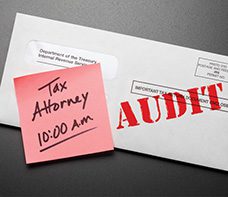By Kevin Carmichael


After reading the notice, taxpayers should first consider the possibility that the IRS could be wrong, or partially wrong about the interest and penalties assessed. Second, even if the IRS is correct, taxpayers should try to establish reasonable cause if they have a good reason for noncompliance. Third, there is a possibility that taxpayers may qualify for an administrative waiver of penalties and interest if they are first-time offenders.
The first and most crucial step, is to communicate with the IRS in a calm and cordial manner, either by replying to the notice in writing or by calling the IRS. While at times it is difficult to get in contact with the IRS, with some patience, you may be able to handle minor issues with a phone call. However, whether you decide to write or call, you must first make sure that you have adequate support for your position. This will include copies of evidence for the entries on the returns that you have previously filed. To facilitate this process, consider requesting a transcript of the IRS’s record of your most recent tax filings. In the transcript, you will be able to see what has been filed and what taxes have been paid or are required to be paid. You can request a copy of your tax transcript at the IRS’s website.
If the IRS is incorrect or partially incorrect, they may accept all or part of your information, and will send you a letter on how the matter is to be resolved. In the other hand, if you do owe all or part of the amount on the notice, you should promptly pay the interest and penalties in order to avoid additional interest and penalties. If you cannot pay the full amount, you have the option to pay over time through an installment agreement with the IRS. You can read about Installment Agreements and even fill one out on the IRS website.
If you did not file, pay or otherwise comply with your filing and paying requirements and think you have a pretty good excuse for not doing so, the IRS does accept reasonable cause explanations as a reason to waive penalties in some circumstances. The most common reasons the IRS will accept include; natural disasters, destruction of residence, and death of an immediate family member. Interestingly, reliance on a tax professional’s guidance or efforts on your behalf does not automatically amount to the equivalent of reasonable cause. You cannot simply blame your accountant for any errors or omissions, because the ultimate responsibility to review and file the tax return belongs to the taxpayer. Further, understand that while a finding of reasonable cause may waive penalties and interest, reasonable cause does not waive the requirement to pay taxes which are properly due.
If you do not qualify for a reasonable cause waiver, you may still have a chance to get penalties waived if this is the first time you have attempted to comply but failed to do so. A taxpayer may qualify for relief from certain penalties if he or she: (1) Was not previously required to file a return, or had no penalties for the three tax years prior to the tax year in which the IRS assessed a penalty; (2) Timely filed all currently required returns or filed an extension of time to file; or (3) Paid, or arranged to pay, any tax due.
If you have exhausted all the previously-mentioned opportunities to get penalties and interest waived, you still have the option to appeal on administrative basis. As explained by this article, taxpayers have many options available to resolve tax matters with the IRS, and should initiate action as necessary.
Lastly, please be aware of scam callers. These individuals will identify themselves as the IRS and will threaten the taxpayer with arrest or incarceration if payment is not paid. The IRS does not cold call taxpayers. If someone calls you in this fashion hang up and call the IRS Fraud Hotline to report the incident.
This Article does not constitute legal advice and may not be relied upon as such. Each individual’s facts and circumstances are different. If you have any questions regarding your particular situation, please consult with legal counsel.
Kevin Carmichael practices and teaches in the areas of closely held business and tax law, business succession planning, not for profit law, federal and state taxation, tax controversy, including OVDI, inbound and outbound tax planning for US and foreign persons, mergers and acquisitions, exempt organization formation, operation and dissolution, corporate governance and US and international estate planning. He is fluent in Spanish.
239.552.4100
www.wbclawyers.com
2150 Goodlette Road North . Sixth Floor . Naples, Florida 34102
 Southwest Florida's Health and Wellness Magazine Health and Wellness Articles
Southwest Florida's Health and Wellness Magazine Health and Wellness Articles
